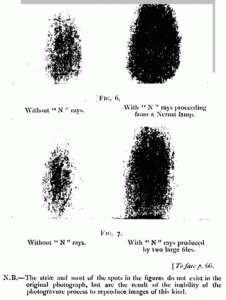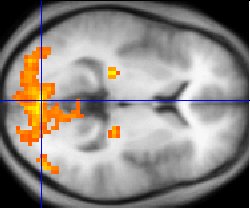
Part one concluded by talking about how our emotions sway our decision making processes. The point being that when we stop asking questions and challenging our understanding of the world we are then easy pray to people who use those emotions, the only thing left to guide us, against our own interests. What kind of emotions are most easily used against us? There are several.
The first one that comes to my mind is the emotion generated by being right. It feels good to be right. We gain a positive feedback from our own mind when we are correct about something. This often expresses itself as confirmation bias. The mind, either overtly or subconsciously, accepts evidence that reinforces our current thinking, and rejects or ignores evidence that we are wrong.

Think of it as a voice inside your mind telling you ‘yes, you’re right’ every time you think about something. Unfortunately, this voice doesn’t care if you’re actually right, it’s only purpose is to kiss your ass all the time. It’s a ‘yes man’ thats on the job 24/7. Just like real world yes men, this little voice is pretty much useless to us. If you don’t ask questions for yourself, this little man will be a big influence in your decision making process. You’ll end up with a warped view of the world, but you’ll feel good and right. Let’s look at an example.
Turn the calendar back over 100 years to the late 19th and very beginning of the 20th century. All the nations of Europe are puffing themselves up with nationalistic pride. They all say they are the best, brightest and most powerful. It’s a powder keg that finally explodes into the first World War in 1914. A German scientist named Wilhelm Röntgen has been working, since 1895, with a new form of light that today we call X-Rays. He’s credited as the discoverer of them since he did so much work to document the phenomena. In fact, for many years X-Rays were known as “Röntgen Rays”, and the pictures taken with them we’re called Röntgenograms. Some still call them by this name. It was a fantastic discovery that had profound effects on the fields of medicine, physics, astronomy and many others. X-Rays were used to discover the structure of DNA. We’re still learning about the cosmos with the help of X-Rays. His legacy will be alive for a long time to come.
So, Germany had Röntgen, along with other eminent scientists like Hertz and Plank. The U.K. had Maxwell, Rayleigh, Faraday, and others. France had…. not much. It wasn’t that French scientists were any less competent, determined, or enthusiastic. It certainly wasn’t that French people in general we’re less worthy of the discoveries. However, in the political climate of the time, it was viewed as a source of shame to the French. They wanted to find something to gain some more nationalistic pride. They were looking so desperately that they found something. They called it N-Rays.

French physicist Prosper-René Blondlot published his ‘discovery’ of N-Rays in 1903. He showed them to many other French scientists at Nancy University who confirmed his findings. During the following years, over 300 papers were published about the subject. Scientists outside France, however, were unable to reproduce the experiments. American physicist Robert Wood, after failing to see N-Rays, traveled to France to see what the French were seeing. He secretly removed critical parts of the experiment. The French still saw the N-Rays. N-Rays only existed in their minds. They were listening to the little yes man in their heads rather then any concrete data. Blondolt went on to contribute much to science in his life time, he was an intelligent man, but as late as 1926 he still professed his belief in the existence of N-Rays.
While the preceding example was in the field of science, confirmation bias invades all corners of human experience. Science, education, politics and religion are all vulnerable. How can it be used intentionally against us by others? Let’s look at politics. Anyone who has has a heated discussion with someone with a different political slant then themselves will tell you how common it is for these other people to point out flaws in their opponents while ignoring or excusing the flaws in their favorite candidate. Thanks to modern medical science, we can look into the living brain of subjects and see what parts are working when these situations come up. In a 2006 article of Scientific American 1, a study was publicized where 30 men, 15 identifying as strong Democrats, and 15 identifying as strong Republicans, were put into a fMRI scanner to have their brains scanned while being asked to analyze statements made by both Bush and Kerry during the run up to the 2004 elections where they clearly contradicted themselves. The results were telling.

The results showed that “the part of the brain most associated with reasoning–the dorsolateral prefrontal cortex–was quiescent. Most active were the orbital frontal cortex, which is involved in the processing of emotions; the anterior cingulate, which is associated with conflict resolution; the posterior cingulate, which is concerned with making judgments about moral accountability; and–once subjects had arrived at a conclusion that made them emotionally comfortable–the ventral striatum, which is related to reward and pleasure.” So, in short, they we not analyzing the quotes at all. They subconsciously realized there was a conflict, but it was dismissed so they would still feel comfortable about their position and they were rewarded when the little yes man told them they were right. They were critical of those they viewed as their opponents, while supportive of those they viewed as their allies. There was no real thinking happening.
This non-logical brain function is used against us all the time. All someone needs to do is convince us that they are on our side and anyone with a contradicting thought is against us and they can gain our unthinking loyalty. It seems we haven’t come very far since ancient times. Back then the people on the other side of the valley, mountain or river were the ‘others’ and no thinking is needed to declare them the enemy. They dressed different, talked different, and worshiped different. It’s tribalism at it’s worst.
But we’re not done yet. Like I said earlier, confirmation bias is only one tool that can be used against us when we stop asking questions. I’ll pick up on another tool in the next part.